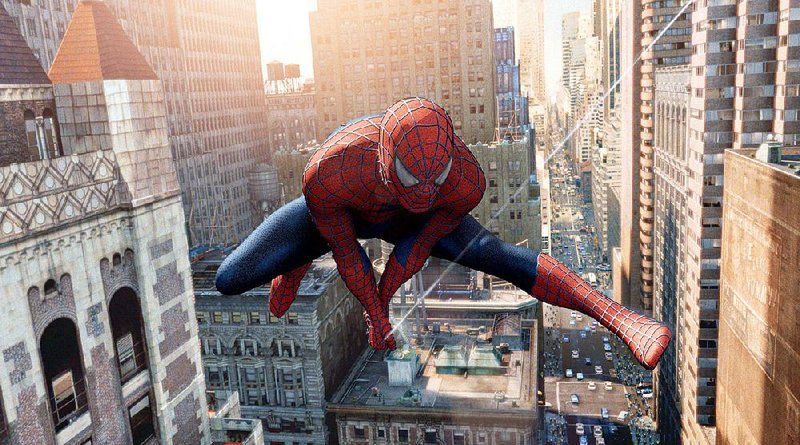We are all of us a nation of narrative junkies, lurching from one fix -- Breaking Bad, Game of Thrones, Mad Men -- to another -- Harry Potter, Twilight, The Hunger Games -- without even bothering to sterilize our needles.
Think about the amount of content available at our fingertips in the modern age: According to the Motion Picture Association of America, as recently as 2003, the total number of films released stood at 455; not even 10 years later, in 2012, that number had shot up to 677, a pretty staggering increase (and still climbing: Last year, there were 697 films released in the United States, an average of more than 13 each week). There are so many new films crowding each other out in the multiplexes that even a publication as well-stocked and comprehensive as The New York Times recently had to concede the impossibility of reviewing every film that plays the screens of Gotham.
Just as with traditional junkies, though, our need grows more desperate and yearning with each passing fix. Where we might once not that long ago have been satiated by simple dramatic shows as ER or CSI: Wilmington -- largely episodic fragments of a reputable narrative, with no further purpose or end-game than to engage us long enough for advertisers to have to pay top dollar for our attention; now, we need depth, clarity, and circumspect continuity, a sense of drive that takes our protagonist from one level to another as planned over the course of a set number of seasons. We aren't interested in "the continuing adventures" of anything, we want the payoff for all the time we spend attending the characters, and not just a cheap feel-good send-off in the last episode. We no longer view TV as disposable and mindless, now we demand that it be gripping, engaging and, most of all, fulfilling. We ask of it what we used to ask from novels and films, a reason to put our energy forth in the first place, a faith that we will be rewarded for our attention.
Which is why it's so surprising this revolution has happened within the parameters of our flat-screens (even of the ludicrous 72-inch variety) far more than on our towering big movie houses and IMAX Ultra 3-D experiences. There, for better (rarely) or worse (far more common), the summer blockbuster has remained largely unchanged since its original inception: a few spectacles, a hearty number of explosions, a bunch of wildly unrealistic CGI-based stunts, and an ending in which everyone has gotten more or less what they didn't know they wanted, but we did. In short, a cynical process of repetition and formula: lazy, dull and eminently predictable.
The problem, unsurprisingly, is one of scope and imagination. To a major studio executive, holding desperately onto the trunk, even if it's covered in fire ants, is infinitely preferable to going out on a limb, which makes a crude sort of sense: If you were playing with $200 million that could make or break your career and, quite possibly, the healthy financial future of your workplace, there would be a strong pull to opt for the safest possible route as to its facility. Why create something new and daringly different which might work, or could just as easily fail miserably (why hello, John Carpenter), when it's so much easier to produce something instantly recognizable, marketable and time-proven. There's a reason the superhero genre is running so rampantly through our summer seasons, becoming yet another grim fact of life during the hottest months: They reliably make bank, even when they artistically fail as aggressively as Marc Webb's last reboot of Spider-Man, which was pretty much universally loathed, and caused its studio, Columbia, to reconsider its options for yet another reboot, yet still made a healthy $709 million worldwide.
No, that actually makes a lot of financial sense, to cut the beleaguered suits a bit of slack. The problem isn't so much that you can't imagine why executives don't greenlight off-the-wall stuff with that $200 million, it's the fact that a studio feels the need to have to pony up that sort of enormous budget in the first place. If, instead of pouring all your resources into one would-be behemoth, you made several smaller-budget films that could maybe do well on their own without having to be "the third-highest grossing blah in worldwide blah blah blah," the business model might correct itself a bit more easily.
This is precisely what no less an expert than Steven Spielberg -- he of the cumulative $4.1 billion in grosses over his elongated career -- was suggesting in his infamous " state of the union" address back in 2013, during the opening of a new film building at his alma mater, the University of Southern California. His point was despite the huge increase in releases, it was getting harder and harder to get a niche film released on the studio level (he claims Lincoln was very nearly an HBO film), and the studio's continued reliance on a small number of huge releases instead of a larger spate of more moderate ones would eventually bring down the entire industry. Of course, he was spot on! But there's also another, less quantifiable problem here, one endemic to what's ailing our filmed entertainments on a fundamental level.
Essentially, the studios can hide all they want behind their massive bankrolls and the fear of losing them with a catastrophic mistake. The other casualty in our current system is the soaring imagination of our artists, writers and directors. Water flows from high to low, as the studios embrace their inner timidity and hope for box-office redundancy (honestly, if the suits had their way, they would literally release the same film each year -- let's call it The Further Adventures of Animal-Talisman-Man -- and ride us all completely aground in the swampy marshlands of inertia), their underlings do the same and the message sent to anyone with a new thought or twist or arc is to not bother setting up the pitch meeting. This is depressing, and completely unsustainable: If every restaurant in town were an Applebee's, they might all go out of business.
This is why it was so astonishingly gratifying that the biggest box-office hit of last year's pretty tepid summer was an off-beat studio film about a group of bickering misfits that no one knew a damn thing about beforehand, made by a little-known director, and starring next to no one with a household name. Of course, I speak of James Gunn's Guardians of the Galaxy, which, while hardly some indie darling (its budget was $170 million after all), showed some actual brass from Marvel Studios (a subsidiary of Disney), the studio that bankrolled it, and caused at least minor ripples in the major studios' agreed-upon rules of order. If they were smart about it, that example might even lead them away from this abyss in which they appear so keen to toss themselves.
To wit, there is ample suggestion that the age-old philosophy of throwing out repetitious, uninspired spectacle drivel, doubling down on an enormous marketing budget, and crossing one's fingers for a huge opening weekend simply isn't working anymore. Check out these failed entreaties, each one adhering to at least one huge studio tenet, believed for many years to be unassailable.
Gotta have big stars: Knight and Day, a Tom Cruise and Cameron Diaz uninspired romantic thriller that cost $117 million, only grossed $76 million domestic. Big names could not begin to make up for idiotic characters roiling in a romantic chemistry that reacted worse than mixing Diet Faygo with Drano crystals.
Gotta have recognizable properties: The Lone Ranger featured Johnny Depp as an American Indian and Armie Hammer as the masked western hero, at a cost of a staggering $215 million, which didn't even make half of its money back domestically. (As with many of these examples, the studios were able to break even or thereabouts with all the foreign markets, but that's hardly good enough for a film expected to do much, much better.)
Gotta have an easy sell-line: Total Recall, this would be the reboot of what many consider to be a campy sci-fi classic (this critic excepted). At a cost of $125 million, the film only grossed $58 million domestically and got torn apart by critics and vengeful fans of the original.
Gotta have big action stunts: Hercules, which starred Dwayne Johnson as the legendary Greek demi-god, cost $100 million and made $72 million domestically, despite the fact that the trailers suggested it was almost nothing but pulse-pounding stunts, thrills, and, er, pounding.
Gotta be cross promoted to the hilt: After Earth, M. Night Shyamalan's ill-fated Will Smith/Jayden Smith sci-fi vehicle was promoted like crazy by its studio, Columbia, who had chosen it among a select few to represent its new 4K filming technology. As a result, the studio poured an estimated $100 million into marketing and cross promotions, including a robotics challenge, hook-up with TNT's NBA playoff coverage, and numerous novels, comics and illustrated manuals, intended to drum up buzz. All this for a film that couldn't even make half of its $130 million budget back domestically.
With this catalog of failure, and with the studios wringing their hands about the downward trend of summer ticket grosses (last year, in particular, was a bloodbath with more than 16 percent drop in total summer grosses), which themselves are greatly buoyed by the one or two break-out hits of a given season, you would think they would have had enough. That they might actually try to peer out of their little shoe boxes and rethink their doomed strategy. We might be willing addicts, but we can still tell the difference between the pure stuff and a bag of old cornstarch.
After all, the vast majority of TV shows that have transcended the tube (including all of the series I namedropped in my opening paragraph) to become cultural phenomena were the happy result of a struggling and/or virtually unknown cable channel taking a chance with relatively unknown creative talent and giving them enough space and time to create something truly unique and captivating.
We are also a culture of super-charged, endlessly rapacious predators, constantly in search of something new and excitingly unknown to clamp our jaws on. Chris Rock once told a musical awards audience that the business now moved so relentlessly fast it was like "here today, gone today," which is true not just of our music preferences, but also our need for new pop-culture touchstones. It's an audience of jacked-up Google Fiber customers, constantly clicking on new things and testing them so they can be the first to post to their social media they've discovered what fictional food critic Anton Ego once referred to as "the new."
To this sort of audience -- skewed young, to no one's surprise, as we're really dealing with the Internet Generation -- studios playing by the same old, stodgy rules as they used to makes them seem like massive, virtually immobile ocean liners trying to navigate a treacherous field of nautical contact mines as small, sleek speed boats run circles around them and zip on to new frontiers. Meanwhile, to stretch one last metaphor to the breaking point, the studio execs sit there, reeling in their self-created horse latitudes, gathering barnacles and lolling on the foredeck, working on their tans, seemingly resigned to go down with all hands.
MovieStyle on 06/12/2015


